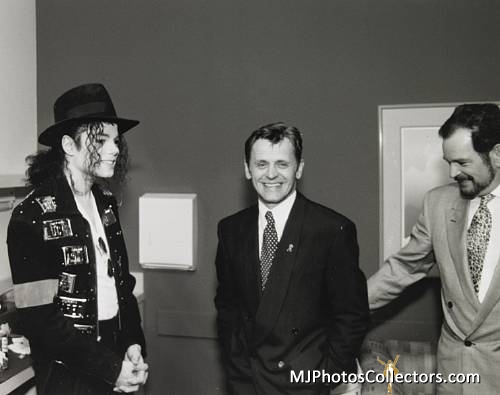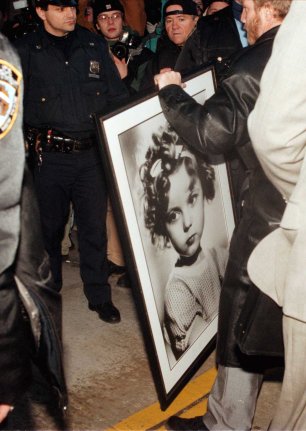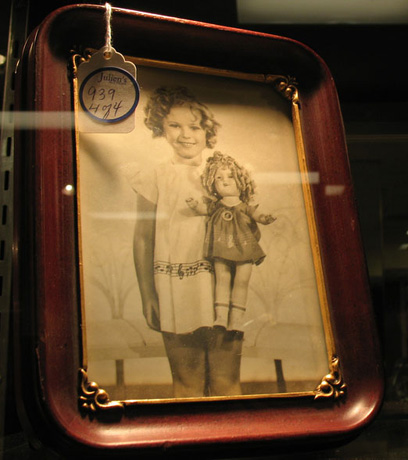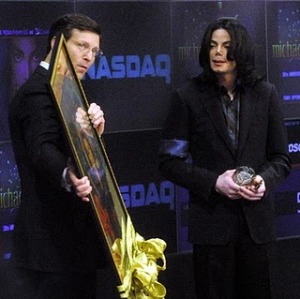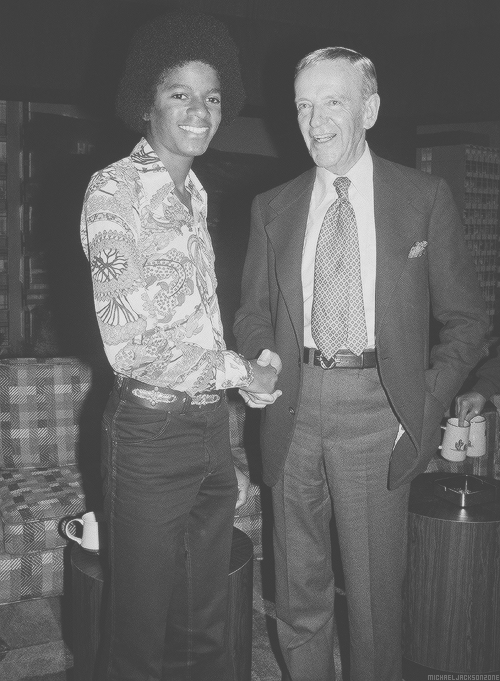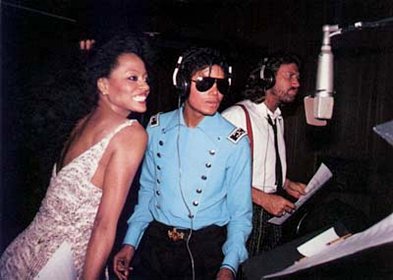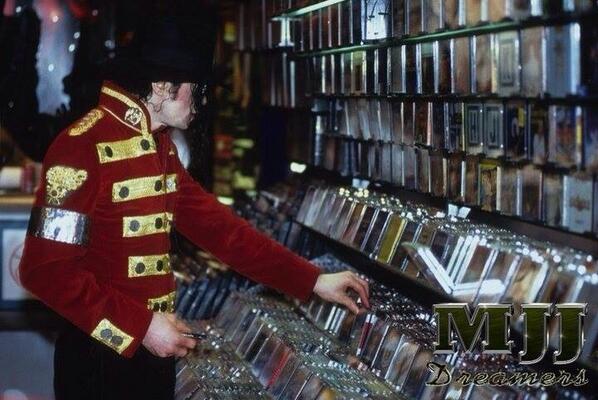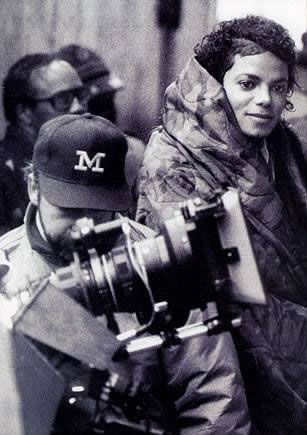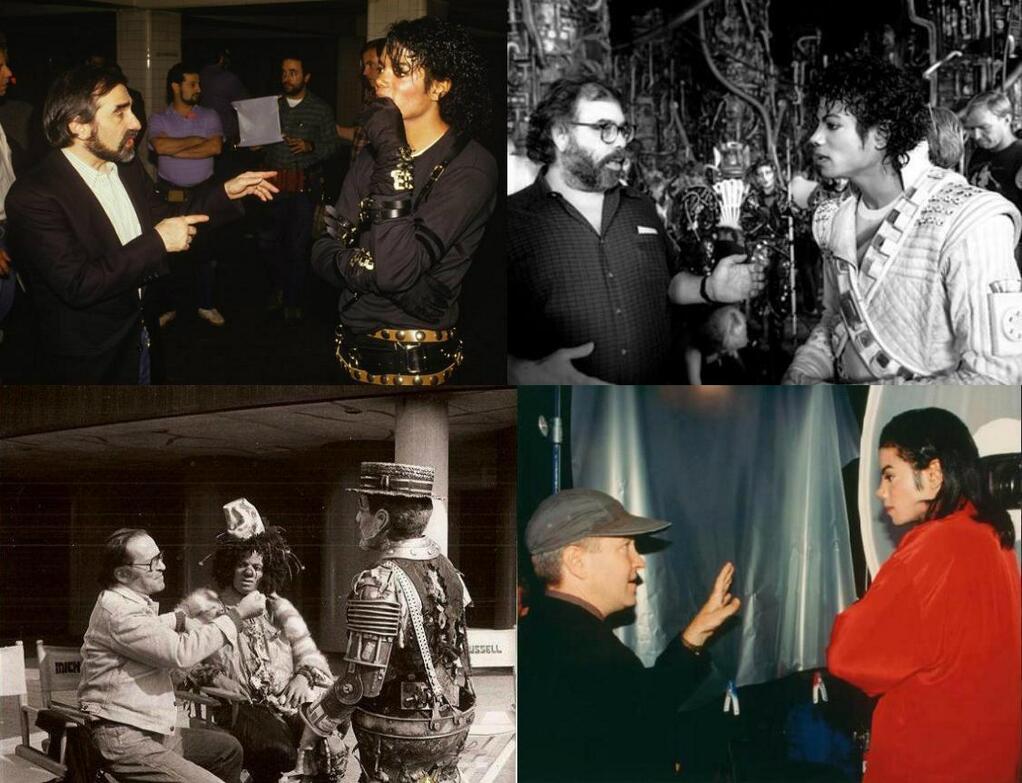FACT
Michael Jackson was a crowned King in the Ivory
Coast, In 1992, during one of his epic tours of the African continent. Around
the time of his releasing the Dangerous album, Michael traveled to
Gabon, which ironically also lost a political leader in Omar Bongo
recently, and proceeded to the Ivory Coast.
Here in the land
that he personally described as the "land of his ancestors", Michael Jackson consented to being crowned King Sani in a ceremony conducted
under a sacred tree in the gold-mining village of Krindjabo, heart of
the Agni tribe near the capital Abidjan.
The coronation took
place superintended by traditional chief Amon N’Djaolk, who placed a
golden crown on the head of the tribe’s new monarch and declared that
Jackson was now King of Sani, king of this proud West African
tribespeople.
In fact, "King Michael" loved the honour so much
that he kept a very close relationship with the tribe for the whole 18
years that he reigned over the tribe as their monarch, capping his
celebrated life as a unique and unpredictable eccentric personality who
was anything but fully understood, least of all predictable.
His
well-recited and shy response after the coronation is well documented.
Overcome by emotions, Michael said "merci beaucoup" to his
French-speaking subjects, repeating the same in English with the
trademark soft "thank you very much".
He then joined elders of
the king’s court, signed official documents and sat on a throne of gold
as women dancers, clad in white gowns, gave a dazzling performance of
ritual dances.
These elderly women are the guardians of the
village, and their ceremonial dances gave their blessings to the
crowning of "King Sani" and asked God for protection at a tree that
symbolised the essence of power.
The musical messenger, who
journeyed to West and East African nations as an
ambassador of peace, love and goodwill, achieved a success that
exceeded his expectation.
<iframe width="420" height="315" src="//www.youtube.com/embed/zE4g2Ij0M-U" frameborder="0" allowfullscreen></iframe>
Michael Jackson: crowned in Africa, pop music king tells real story of controversial trip
Ebony, May, 1992 by Robert E. Johnson
WHEN he was out front as the 14year-old lead vocalist of the Jackson Five singing group, Michael Jackson visited Africa for the first time.
"When we came off the plane in [Daka, Senegal] Africa," he recalls, "we were greeted by a long line of African dancers. Their drums and sounds filled the air with rhythm. I was going crazy, I was screaming, "All right! They got the rhythm... This is it. This is where I come from. The origin."'
Nineteen years later, when Michael, now 33, came off the plane in Gabon, a West African neighbor nation of Senegal, he was greeted by an excited, screaming crowd of grade-school students who carried a banner that proclaimed: "Welcome Home Michael."
Drum sounds again filled the air with rhythm that flowed from fans who gathered at the airport and lined the streets in anticipation of seeing the "king of pop, rock and soul," who would later be crowned "King Sani" in a West African village.
Despite or perhaps because of this acclaim, the pop idol almost immediately became the center of an international controversy based on a negative media campaign. The media bashing included these big lies:
The trip was a "public relations disaster for Michael." Truth: It was a triumph in which he drew more spectators in Gabon than Nelson Mandela and more in the Ivory Coast than the Pope, according to African spokespersons.
* "The singer cut short an African tour after a stopover generated the wrong kind of excitement." Truth: The sponsors wanted him to extend his tour to meet the demand for his appearances everywhere.
* He held his hand to his nose because the African nations smelled. Truth: He sometimes touched his nose, an old nervous habit which earned him the nickname "Smelly," given originally by Quincy Jones because Michael was touching his nose in Los Angeles.
* He collapsed from the heat and he went to London for a medical appointment. Truth: He was never bothered by the heat. His personal physician, Dr. R. Chalmers, accompanied Jackson on the trip. Jackson didn't go to London for a medical appointment.
* He refused to shake hands with Africans. Truth: He shook the hands of hundreds of people, hugged and kissed children in hospitals and institutions for the mentally retarded.
* He is "neither Black nor White" and is not a good role model for children. Truth: After Michael read a prayer in the Basilica of Our Lady of Peace in the Ivory Coast, a 9-year-old boy exclaimed "Michael is love, love, love! I want to be like him."
Because he is well known for his humanity and philanthrophy, tour organizer Charles Bobbit reflected on the Affrican tour and said: "I was impressed with the interaction between Michael and the children. He sat on the bed with children who were deformed and children that were ill... He sat there and talked to them, hugged, cuddled them. He shook hands and did not wear a surgical mask like he does sometimes in America... That qualifies him as a role model for children--his deeds and not his looks."
While the international controversy raged, Michael remained aloof, refusing to read the stories and saying that he preferred to let his deeds and his songs speak for him. Strangely and significantly, he had anticipated these and other criticisms in the song, "Why You Wanna Trip On Me," in the Dangerous album. The song says, in part:
They say I'm different/They don't understand/But there's a bigger problem] Thats much more in demand/You got world hunger/Not enough to eat/So there's really no time/To be trippin' on
It was clear from the beginning that the African people agreed with Michael. And from the time of his arrival, the natWe of Gary, Ind., was welcomed like a ruling dignitary and a long-lost son.
He had come to the land of his ancestors to participate in a historic ceremony conducted beneath a sacred tree in the gold-mining village of Krindjabo, populated by the Agni tribe and located near Abidjan, Ivory Coast. As the village people stood in admiration, Amon N' Djaolk, the traditional tribal chief of Krindjabo, placed a crown of gold upon the head of the musical monarch and pronounced him "king of Sani..
Almost overcome by emotions, the shy, sensitive son of Joseph and Katherine Jackson smiled and said, "Merci beaucoup," to the French-speaking people and repeated in English, 'Thank you very much."
He then joined elders of the king's court, signed official documents and sat on a throne of gold as women dancers, clad in white gowns, gave a dazzling performance of ritual dances. These elderly women are the guardians of the village, and their ceremonial dances gave their blessings to the crowning of"King Sani" and asked God for protection at a tree that symbolized the essence of power.
The musical messenger, who journeyed to West and East African nations as a self-proclaimed ambassador of peace, love and goodwill, achieved a success that exceeded his expectation.
From his sunset arrival in Gabon, where more than 100,000 people greeted him with spiritual bedlam, to his stop in Cairo, Egypt, to which he had paid homage on his newest album, Dangerous, with the best-selling single and music video Remember The Time, Michael was caught up in a hurricane of happy happenings.
In French-speaking, oil- and mineralrich Gabon, he received the West African nations Medal of Honor from President Omar Bongo, who was the official host of the performer's "Come Back To Eden" tour.
President Bongo told Jackson that he was the first entertainer to ever receive the medal, which until then has been given only to heads of states and highranking diplomats and dignitaries--including Nelson Mandela.
As host of the tour, President Bongo appointed his daughter, Pasoaline Bongo, the nation's foreign Minister, and his son, Ali Bongo, to coordinate the tour along with Charles Bobbit, a consultant to the president, who initiated the idea for Jacksons visit.
Jackson agreed to go on the non-performing tour with the stipulation that his priority was his "desire to visit orphanages, children's hospitals, churches, schools and playgrounds."
During his visits to Gabon, the Ivory Coast, Tanzania and Egypt, he encountered "Michael mania" everywhere. His image was on posters, T-shirts, billboards, a postage stamp (in Tanzania), and street banners. His music was played on the radio, piped into hotels-- Okume Palace in Libreville, Gabon; Hotel Ivoire in Abidjan, Ivory Coast; and the Kilimanjaro Hotel in Dar es Salaam, Tanzania.
Energetic and intensely interested in his fans, he logged 30,000 miles in 11 days; passed through 11 time zones, slept in five time zones and landed on four continents--South America, Africa, Europe and North America. His 26-porson entourage traveled in a Boeing 707 Executive plane with stateroom, private bath, open bar, lounges, dining areas, video and audio equipment, telephones and fax machines.
And when it was over, the entertainer, contrary to false rumors, had given a new Michael Jackson twist to person-toperson diplomacy and had touched the lives of hundreds of thousands of proud Africans.
MICHAEL SPEAKS
EBONY/JET: Do you have any special feeling about this return to the continent of Africa?
JACKSON: For me, its like the "dawn of civilization." Its the first place where society existed. It's seen a lot of love. I guess there's that connection because it is the root of all rhythm. Everything. Its home.
EBONY/JET: You visited Africa in 1974. Can you compare and contrast the two visits?
JACKSON: I'm more aware of things this time: the people and how they live and their government. But for me, I'm more aware of the rhythms and the music and the people. Thats what I'm really noticing more than any thing. The rhythms are incredible. You can tell especially the way the children move. Even the little babies, when they hear the drums, they start to move. The rhythm, the way it affects their soul and they start to move. The same thing that Blacks have in America...
EBONY/JET: How does it feel to be a real king?
JACKSON: I never try to think hard about it because I don't want it to go to my head. But, its a great honor ....
EBONY/JET: Speaking of music and rhythm, how did you put together the gospel songs on your last album?
JACKSON: I wrote "Will You Be There?" at my house, "Never Land" in California....I didn't think about it hard. Thats why its hard to take credit for the songs that I write, because I just always feel that it's done from above. I feel fortunate for being that instrument through which music flows. I'm just the source through which it comes. I can't take credit for it because it's Gods work. He's just using me as the messenger....
EBONY/JET: What was the concept for the Dangerous album?
JACKSON: I wanted to do an album that was like Tchaikovsky's Nutcracker Suite. So that in a thousand years from now, people would still be listening to it. Something that would live forever. I would like to see children and teenagers and parents and all races all over the world, hundreds and hundreds of years from now, still pulling out songs from that album and dissecting it. I want it to live.
EBONY/JET: I notice on this trip that you made a special effort to visit children.
JACKSON: I love children, as you can see. And babies.
EBONY/JET: And animals.
JACKSON: Well, there's a certain sense that animals and children have that gives me a certain creative juice, a certain force that later on in adulthoed is kind of lost because of the conditioning that happens in the world. A great poet said once. "When I see children, I see that God has not yet given up on man." An Indian poet from India said that, and his name is Tagore. The innocence of children represents to me the source of infinite creativity. That is the potential of every human being. But by the time you are an adult, you're conditioned; you're so conditioned by the things about you--and it goes. Love. Children are loving, they don't gossip, they don't complain, they're just open-hearted. They're ready for you. They don't judge. They don't see things by way of color. They're very child-like. Thats the problem with adults: they lose that child-like quality. And thats the level of inspiration that's so needed and is so important for creating and writing songs and for a sculptor, a poet or a novelist. It's that same Idnd of innocence, that same level of consciousness, that you create from. And kids have it. I feel it right away from animals and children and nature. Of course. And when I'm on stage. I can't perform if I don't have that kind of ping pong with the crowd. You know the kind of cause and effect action, reaction. Because I play off of them. They're really feeding me and I'm just acting from their energy.
EBONY/JET: Where is all this heading?
JACKSON: I really believe that God chooses people to do certain things, the way Michelangelo or Leonardo da Vinci or Mozart or Muhammad Ali or Martin Luther King is chosen. And that is their mission to do that thing. And I think that I haven't scratched the surface yet of what my real purpose is for being here. I'm committed to my art. I believe that all art has as its ultimate goal the union between the material and the spiritual, the human and the divine. And I believe that that is the very reason for the existence of art and what I do. And I feel fortunate in being that instrument through which music flows .... Deep inside I feel that this world we live in is really a big, huge, monumental symphonic orchestra. I believe that in its primordial form all of creation is sound and that it's not just random sound, that its music. You've heard the expression, music of the spheres? Well, thats a very literal phrase. In the Gospels, we read, "And the Lord God made man from the dust of the earth and breathed into his nostrils the breath of life and man became a living soul." That breath of life to me is the music of life and it permeates every fiber of creation. In one of the pieces of the Dangerous album, I say:
"Life songs of ages, throbbing in my blood, have danced the rhythm of the tide and flood." This is a very literal statement, because the same new miracle intervals and biological rhythms that sound out the architecture of my DNA also governs the movement of the stars. The same music governs the rhythm of the seasons, the pulse of our heartbeats, the migration of birds, the ebb and flow of ocean tides, the cycles of growth, evolution and dissolution. It's music, its rhythm. And my goal in life is to give to the world what I was lucky to receive: the ecstasy of divine union through my music and my dance. Its like, my purpose, its what I'm here for.
EBONY/JET: What about politics?
JACKSON: I never get into politics. But I think music soothes the savage beast. If you put cells under a miscroscope and you put music on, you'll see them move and start to dance. It affects the soul.... I hear music in everything. [Pauses] You know, that is the most I've said in eight years ..... You know I don't give interviews. That because I know you, and I trust you. You're the only person I trust to give interviews to.
Africa, 1992
[ame="http://www.RBGTube.com/play.php?vid=5528"]Michael Jackson, A Crowned Afrikan King Africa RBG Tube | PanAfrican.TV v2.0 - Free Revolutionary Audio Video Speech Library of Leaders, Activist, and
Educators@@AMEPARAM@@http://www.RBGTube.com/uploads/RiCiMWBEwuUCHsjovPWP.flv@@AMEPARAM@@RiCiMWBEwuUCHs jovPWP[/ame]



